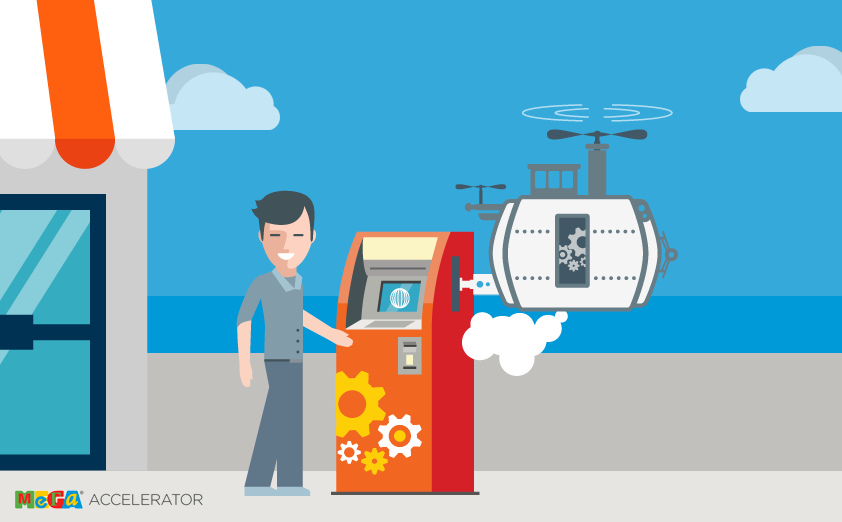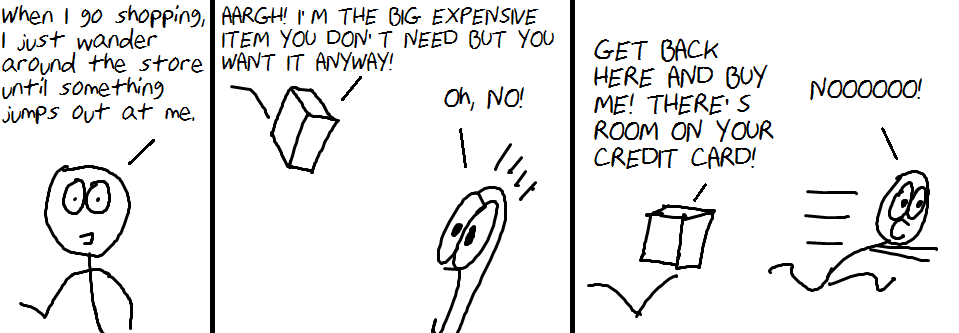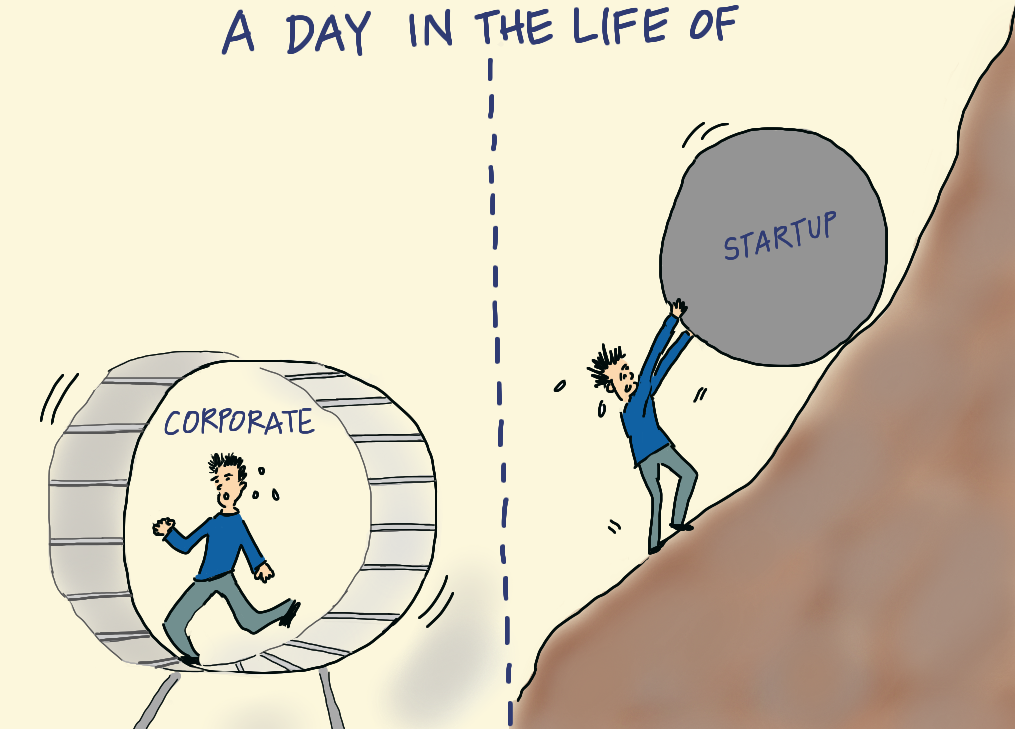How startups are being pumped - says Milen Genchev, curator of MEGA Accelerator

Fire in the eyes, rather big ambitions, fresh ideas - all this can not be exactly describes you, the reader? Fine! However, to seize the world and create a global business empire (are we talking about ambitions here?), This is not always enough. What do we need more? Naturally, a small suitcase with dollars. Well, or to start with the rubles. And in order to make as few mistakes as possible - recommendations from people who understand the market and its subtleties. All of the above - both the MEGA Accelerator business incubator participants can receive funds and expert support. How is the selection of the most interesting applications in the project, and what Russian startups need to pump to meet the international level - says Milen Genchev, curator of MEGA Accelerator and Deputy Director General of IKEA Centers Russia.
 Milen, please tell us what opportunities MEGA Accelerator opens for young entrepreneurs and developers?
Milen, please tell us what opportunities MEGA Accelerator opens for young entrepreneurs and developers?MEGA Accelerator is a project for the search and development of new companies and start-ups, the best of which can become partners of IKEA Centers Russia. Thus, the main opportunity for the participants of our business incubator is the realization of their business ideas. Also, participating teams receive an excellent opportunity for new practical knowledge and study of their projects.
Participants will be trained in a specially created creative space, a training program will be individually selected for each team. The contestants will have a unique chance to discuss their startup with IKEA Centers Russia specialists, receive advice from invited experts, and test their ideas in real conditions. For example, if a startup lacks commercial, marketing experience or experience in working with tenants, IKEA Centers Russia will provide an expert from this very field, provide all the necessary resources and tools for project development.
Experts and mentors from which companies and industries will assist participants? Will there be any famous faces in the startup environment, "stars" from coaching?
GVA LaunchGurus, one of the leaders in supporting and promoting startups, has become a partner of MEGA Accelerator. Over the past two years, she has supported more than 250 projects and attracted more than $ 25 million in private investment. GVA LaunchGurus has connections with Silicon Valley business leaders and the Plug & Play Tech Center.
All coaches are professional entrepreneurs with extensive experience in the development of innovative business projects. Some of them are business angels who own or manage shares in startups. Accelerator mentors will be: Dmitry Bergelson, Managing Partner, Holmes & Moriarty, Gary Fowler, co-founder of GVA LaunchGurus, serial entrepreneur, world-renowned marketer, TEDx speaker, Natalia Kotlyarova, business coach of GVA LaunchGurus, director of business development for BABADU, Vitaly Kaylyarov K, business development coach, GVA LaunchGurus, director of business development for BABADU, Vitally Kalyarova, business coach of GVA LaunchGurus, Vitabay Kay, business development manager at BABADU, off-site marketing, Vitaly Kaylyarova K, , managing partner of AK Patent Law Group.
The collection phase has already been completed. Who claimed to participate in the MEGA Accelerator and how will the further selection of participants take place?
At the first stage, we received 197 applications from startups and teams that want to implement technological innovations in retail. Further, there will be some kind of scoring, which will be carried out by specialists of our company and colleagues from GVA LaunchGurus. The result will be a short list of teams that we would like to invite, after which we will make the final selection. We will proceed from mutual understanding with the teams, their motivation and desire to participate in the project.
What are the requirements for the selection of participants?
The first is a relevant idea for our business. The second is a ready-made team. We also consider ideas behind which there is one person, but still I would like to have a well-chosen team. And, of course, experience in the innovation business is also desirable, but not required. We are ready to work with new teams. In general, we would like to collect a mix from more experienced participants and young, well motivated teams.
Could you tell us about the most interesting applications? Did you like some of them more?
I would say that I saw quite interesting approaches in general, for example, in the field of gamification, robot assistants, footfall-tracking, understanding how the client acts and what he does in our shopping centers. I would also like to mention quite interesting ideas in the field of energy efficiency and some kind of social retail - this is about combining consumerism and charity. People want to see that what they buy does not just bring satisfaction to them, but to some extent the world changes the world for the better.
The project’s website lists 5 of its directions: Communication with customers, Personalization, Automation and robotization, Gamification and virtual reality, Retail sales and sustainable development. Which one do you find most interesting?
In principle, all five areas are important. Of course, personalization, gamification, automation, robotization and virtual reality are probably the most relevant from the point of view of an innovative approach. It is also important for us to communicate with customers, in which new technologies can also help a lot. We would also be interested in new retail concepts, new approaches to working with customers, even if it concerns just live communication, and not technology. Unfortunately, so far there have been few such ideas - basically we were offered various technological innovations.
')
Is there a difference between ideas for a direct retailer and ideas for a shopping center where many sellers work and different types of services are used?
We have more opportunities, motivation and interest to provide such services and create an atmosphere that would make the customer satisfied in a general sense. Still, direct retailer focuses more on sales of a particular product. And our product is more global and common, therefore a more general approach is used. There are ideas that often do not have direct profitability, but are aimed at customer satisfaction, so that he feels better and happier with us. The result will be that he will come to our shopping center to shop again.
Therefore, we are more open to a variety of ideas in different directions. We are a platform that can implement many solutions that are irrelevant to direct retailers.
MEGA Accelerator is a project that has no precedent in the retail market in Russia. Were such activities carried out in other countries where the IKEA Group of Companies is operating? And if so, how successful were they?
Acceleration of external startups in the IKEA Group of Companies has not been practiced before; MEGA Accelerator is the first project of this kind. If he shows successful results in Russia, then it is possible that the project could later be implemented in other countries. IKEA Centers Russia, as the largest developer in the country, very well understands the need to quickly change to the demands and expectations of the target audience, trying to implement the most innovative solutions.
Could you tell us how the process of generating and implementing new ideas in your business is now structured?
In IKEA Centers Russia, any employee can come and discuss the idea with their manager. A special procedure for the introduction of such ideas yet, we are thinking about how to better implement it. The fact is that the creation of a bureaucratic institution can kill the creative spirit. People will begin to say: "There is a special service, I will send my idea to them, and let everything depend on them already." We do not want this.
Milen, before joining IKEA Centers Russia, you worked at the Metro Group. In one of your interviews you said that you started work at Metro Cash & Carry in Russia at the start-up stage. Please share your personal impressions - what was it like doing a startup in Russia in those years?
Yes, when I came to Metro in November 2000, we in Russia had only a few people with laptops and tables in the office space. Therefore, this feeling of a pioneer in the development of a business, the first steps in development are very close to me. This is an experience that is really expensive. It can only be felt. It is clear that Metro is a large corporation and we implemented ready-made business concepts in Russia, received support from other countries. But still, this feeling of a pioneer was present quite strongly, and now I take great interest in interacting with startups.
What do you think, what key changes have occurred in the business climate of Russia since that time?
For 16 years, Russia has greatly changed and advanced, including in terms of technology. In 2000, there were many innovations. Now there is no such problem. For example, even in social terms, it became easy to pay for parking in Moscow. This is not found in European capitals. The direction of electronic documentation has strongly developed.
How does the current difficult economic situation affect the emergence of new ideas and projects?
The crisis to a large extent stimulates market players and requires new solutions. These solutions may not necessarily be based on new technologies, but there must be some new approaches that help to survive the crisis. At the same time, it is difficult to talk about large investments in the conditions of the crisis, which imposes certain restrictions on the possibility of implementing projects. Therefore, this situation also requires a focus. When the economy is growing and everything is good, then I want to try many different projects. In a more difficult situation, you have to focus on the most important. Changes in approaches and focus help to find the strongest and most interesting projects unlike others.
Have you ever come into contact with the startup sphere in recent years? If so, what are your impressions of Russian projects?
In my work, I have always been in one way or another connected with the development of IT technologies and business processes, so the screening of new ideas and technological innovations has always been present. Innovations, technologies in retail and logistics are at a very high level. If we talk about Russia, here startups and people working with new technologies are not inferior to the world level. I would note that they have higher possibilities of adaptation and flexibility, plus excellent creativity.
Probably, what needs to be further tightened is some practicality. I often saw people with highly developed technical abilities, but they didn’t manage to translate their technological knowledge into a real product. However, it seems to me that Russian startups are rapidly moving in this direction and, having pulled it up, they will not only become competitive at the level of world startups, but also be able to outrun them.
Could you give some advice for those who have been selected in the MEGA Accelerator? What is important to pay attention to becoming a winner?
The main advice is to listen and understand well. It is important for teams to be open to the knowledge and expertise we can provide them. Also, once again returning to the time of the applicability of your idea or prototype for the needs of a particular business. Sometimes a startup is so tied to technological or purely conceptual aspects that it cannot adapt and change to the needs of companies and end customers, who must use it. And to work in the accelerator and to win it will be important to find some golden mean between the concept of the product and the needs of the client.
We recommend that you read interesting and relevant discussions of experts about retail and start-ups in our previous interviews:
Dmitry Bergelson on retail and shopping centers
Gary Fowler about looking at a client’s startup
Source: https://habr.com/ru/post/299060/
All Articles


